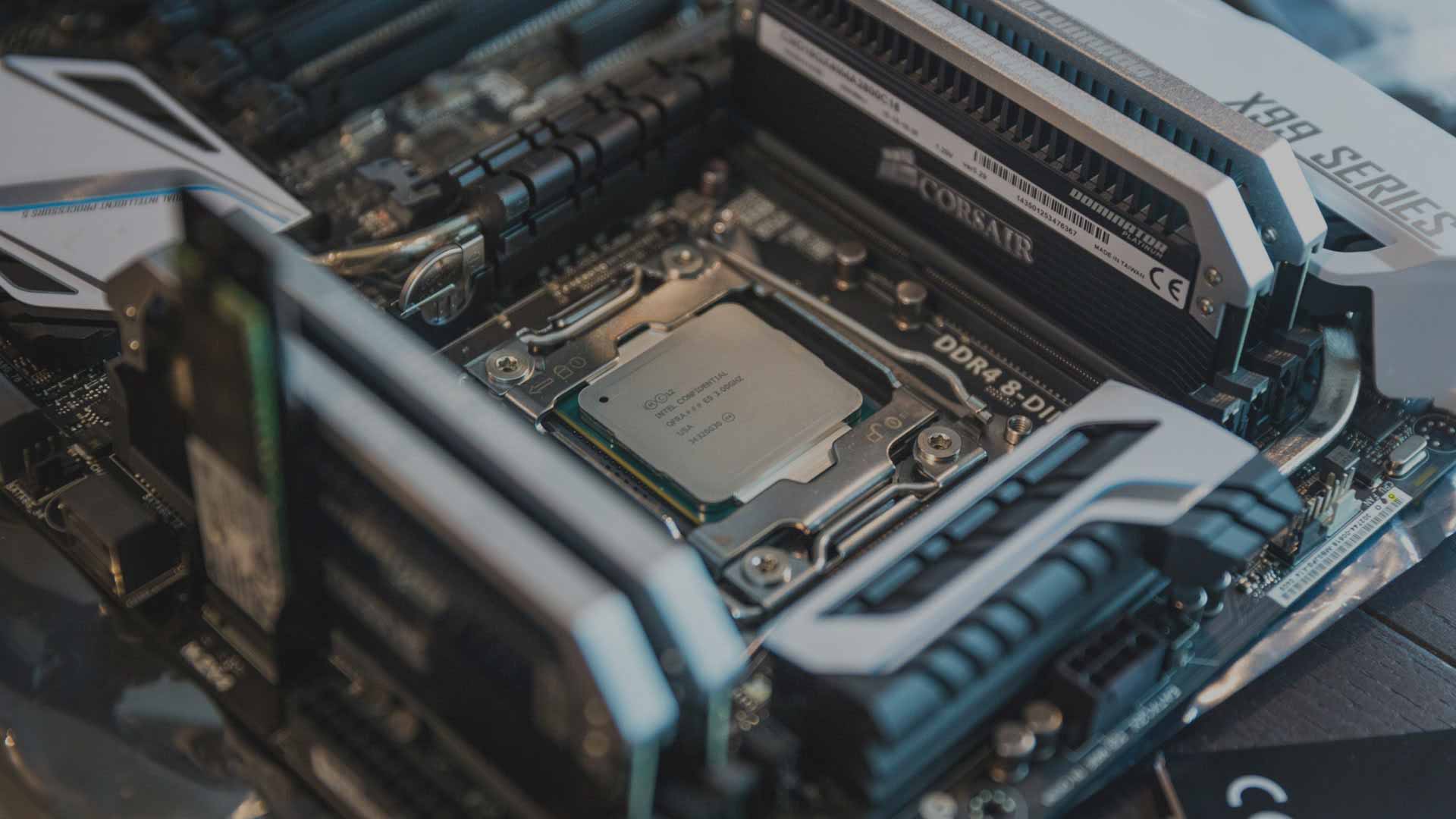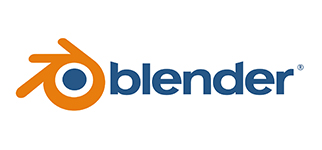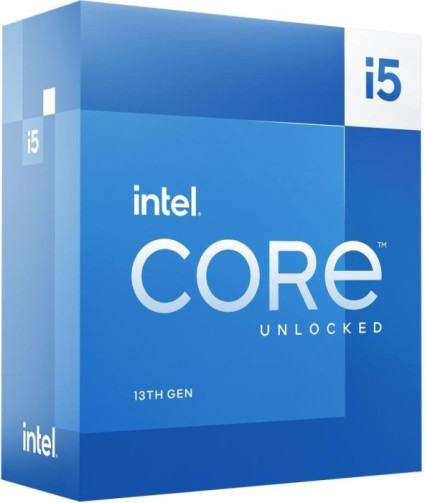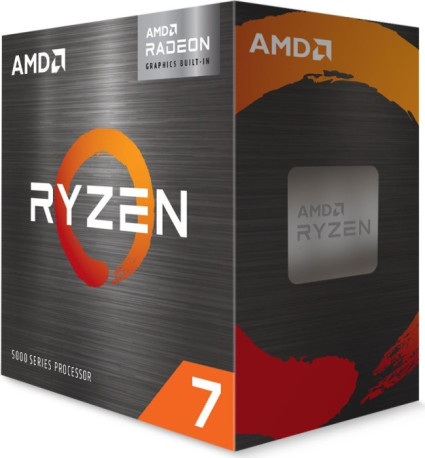
Intel Core i5-13600K vs. AMD Ryzen 7 5700G
In diesem Vergleich von Intel Core i5-13600K versus AMD Ryzen 7 5700G vergleichen wir die technischen Daten der beiden CPUs. Welcher Prozessor ist schneller? Hier gibt es FPS & Benchmarks in Gaming und Anwendungen.
Hinweis: Unsere Links sind Affiliate Links. Wir erhalten beim Kauf eine kleine Provision, ohne dass sich euer Preis erhöht.

Allgemeine Informationen
| Günstigster Preis |
|
|
| Serie | Intel Core i-13000 | Ryzen 5000 |
| Chip-Architektur | Raptor Cove (P-Core) + Gracemont (E-Core) | Zen 3 |
| Codename | Raptor Lake-S | Cezanne |
| Produktname | Intel Core i5-13600K | AMD Ryzen 7 5700G |
Spezifikationen
Die Anzahl der Rechenkerne, die maximale Taktrate und die Größe des Cache können sich auf die Leistung in Spielen und Anwendungen auswirken. Mit 14 Kernen bietet der Intel Core i5-13600K deutlich mehr Kerne als der AMD Ryzen 7 5700G mit 8 Rechenkernen. Der maximale Takt liegt beim Intel Core i5-13600K mit 5.10 GHz etwas höher als beim AMD Ryzen 7 5700G mit 4.60 GHz. Der Cache ist beim Intel Core i5-13600K mit 20 MB L2-Cache + 24 MB L3-Cache zu 4 MB L2-Cache + 16 MB L3-Cache deutlich höher als beim AMD Ryzen 7 5700G.
| Kerne (Gesamt) | 14 | 8 |
| Anzahl P-Cores | 6C | 8C |
| Anzahl E-Cores | 8c | - |
| Basis-Takt | 3.50 GHz | 3.80 GHz |
| Takt P-Cores | 3.50 GHz | 3.80 GHz |
| Takt E-Cores | 2.60 GHz | - |
| Turbo-Takt | 5.10 GHz | 4.60 GHz |
| Turbo P-Cores | 5.10 GHz | 4.60 GHz |
| Turbo E-Cores | 3.90 GHz | - |
| Gesamter L2-Cache | 20 MB | 4 MB |
| Gesamter L3-Cache | 24 MB | 16 MB |
| Fertigung | Intel 7 | TSMC 7 nm |
| Rechenleistung | - | - |
| Leistungsaufnahme (TDP) | 125W (Processor Base Power) 181W (Maximum Turbo Power) |
65W 45W cTDP-down |
Mainboard-Kompatibilität
Während der Intel Core i5-13600K den Intel 1700 Sockel nutzt, ist der AMD Ryzen 7 5700G mit Mainboards für den Sockel AMD AM4 kompatibel. Die genaue Chipsatz-Eignung und die unterstützten PCIe-Lanes können Sie der Tabelle entnehmen.
| Sockel | Intel 1700 | AMD AM4 |
| Chipsatz-Eignung | B660, B760, H610, H610E, H670, H770, Q670, Q670E, R680E, W680, Z690, Z790 | A520, B550, X300 (AM4), X570 (modellabhängig: A320, B350, B450, X370, X470) |
| PCIe-3.0-Lanes | - | 24x [16+4+4] |
| PCIe-4.0-Lanes | 4x | - |
| PCIe-5.0-Lanes | 16x | - |
RAM-Kompatibilität
Während Sie beim Intel Core i5-13600K bis zu 192 GB vom Typ DDR4/DDR5 im Dual Channel verbauen können, unterstützt der AMD Ryzen 7 5700G bis zu 128 GB DDR4 Arbeitsspeicher.
| Speicher-Controller | DDR4/DDR5 | DDR4 |
| Anzahl Speicherkanäle | Dual Channel | Dual Channel |
| max. Speichermenge | 192 GB | 128 GB |
| ECC-Unterstützung | ✓ | - |
Grafik
| iGPU | ✓ | ✓ |
| iGPU-Modell | Intel UHD Graphics 770 | AMD Radeon Graphics |
| iGPU-Takt | 0,30-1,50GHz | 2,00GHz |
| iGPU-Einheiten | 2Xe/32EU/256SP | 8CU/512SP |
| iGPU-Rechenleistung | 0.77 TFLOPS (FP32) | 2.05 TFLOPS (FP32) |
| iGPU-Architektur | Xe-LP / Gen 12.2, Codename "Raptor Lake GT1" | GCN 5.1, Codename "Vega" |
| iGPU-Interface | DP 1.4a (7680x4320@60Hz), eDP 1.4b (5120x3200@120Hz), HDMI 2.1 (4096x2160@60Hz) | DP 1.4 (3840x2160@60Hz), HDMI 2.0b (3840x2160@60Hz) |
| iGPU-Funktionen | 4x Display Support, 2x Codec Engines / Video Decode Boxes, Intel Clear Video HD, Intel Quick Sync Video, AV1 decode, H.265 encode/decode, VP9 encode/decode, HDCP 2.3, DirectX 12, OpenGL 4.5, OpenCL 3.0, Vulkan 1.0 | 4x Display Support, AMD Eyefinity, AMD FreeSync 2, H.265 encode/decode, VP9 decode, DirectX 12.1, OpenGL 4.5, Vulkan 1.0, max. 16GB iGPU-Speicher |
Sonstiges
| Freier Multiplikator | ✓ | ✓ |
| Stepping | B0, Spec Code: SRMBD | CZ-A1 |
| Heatspreader-Kontaktmittel | Metall/verlötet | Metall/verlötet |
| Temparatur max. | 100°C (Tjunction) | 95°C (Tjmax) |
| Fernwartung | ✓ (Intel vPro Essentials, Intel vPro Enterprise) | - |
| Einführung | 2022/Q4 (20.10.2022) | 2021/Q2 (13.4.2021) |
| Herstellergarantie | 5 Jahre bei Intel® Boxed-Prozessoren durch erweiterte Garantieunterstützung (Info EN) | 3 Jahre bei AMD® Boxed-Prozessoren (Info EN) |
CPU-Funktionen
| AES-NI | ✓ | ✓ |
| AVX | ✓ | ✓ |
| AVX2 | ✓ | ✓ |
| Boot Guard | ✓ | - |
| CET | ✓ | - |
| DL Boost | ✓ | - |
| EIST | ✓ | - |
| GNA 3.0 | ✓ | - |
| Idle States | ✓ | - |
| Instruction Set | ✓ | - |
| ISM | ✓ | - |
| MBEC | ✓ | - |
| Optane Memory Support | - | - |
| OS Guard | ✓ | - |
| Secure Key | ✓ | - |
| Speed Shift | ✓ | - |
| SSE4.1 | ✓ | ✓ |
| SSE4.2 | ✓ | ✓ |
| Thermal Monitoring | ✓ | - |
| VMD | ✓ | - |
| VT-d | ✓ | - |
| VT-x | ✓ | - |
| VT-x EPT | ✓ | - |
| XD Bit | ✓ | - |
Spiele

- AMD Ryzen 7 5700GAVG68.99 %1%69.73 %
- Intel Core i5-13600KAVG100.00 %1%100.00 %

- Intel Core i5-13600KAVG253.4 FPS1%184.8 FPS
- AMD Ryzen 7 5700GAVG179.9 FPS1%136.9 FPS

- Intel Core i5-13600KAVG593.6 FPS1%300.2 FPS
- AMD Ryzen 7 5700GAVG373.3 FPS1%226.5 FPS

- Intel Core i5-13600KAVG152.3 FPS1%106.4 FPS
- AMD Ryzen 7 5700GAVG130 FPS1%81.5 FPS

- Intel Core i5-13600KAVG196.1 FPS1%152.4 FPS
- AMD Ryzen 7 5700GAVG146.5 FPS1%105.4 FPS

- Intel Core i5-13600KAVG160.8 FPS1%109.2 FPS
- AMD Ryzen 7 5700GAVG98.5 FPS1%69.1 FPS

- Intel Core i5-13600KAVG239 FPS1%152.2 FPS
- AMD Ryzen 7 5700GAVG176.1 FPS1%111.4 FPS

- Intel Core i5-13600KAVG86.1 FPS1%65.7 FPS
- AMD Ryzen 7 5700GAVG57.5 FPS1%42.6 FPS

- Intel Core i5-13600KAVG278 FPS1%161.2 FPS
- AMD Ryzen 7 5700GAVG156.4 FPS1%98.7 FPS

- AMD Ryzen 7 5700GAVG1.22 FPSIntel Core i5-13600KAVG0.83 FPS

- AMD Ryzen 7 5700GAVG4.03 FPSIntel Core i5-13600KAVG2.64 FPS
Produktivität
Produktivität

- AMD Ryzen 7 5700GAVG74.02 %Intel Core i5-13600KAVG100.00 %

- AMD Ryzen 7 5700GPKT96826 PunkteIntel Core i5-13600KPKT122059 Punkte

- AMD Ryzen 7 5700GPKT1062 PunkteIntel Core i5-13600KPKT1397 Punkte

- AMD Ryzen 7 5700GPKT699 PunkteIntel Core i5-13600KPKT894 Punkte

- AMD Ryzen 7 5700GSEK396 SekundenIntel Core i5-13600KSEK275 Sekunden

- AMD Ryzen 7 5700GPKT787 PunkteIntel Core i5-13600KPKT1218 Punkte

- AMD Ryzen 7 5700GPKT2247 PunkteIntel Core i5-13600KPKT2960 Punkte

- AMD Ryzen 7 5700GPKT9831 PunkteIntel Core i5-13600KPKT16587 Punkte

- AMD Ryzen 7 5700GSEK103 SekundenIntel Core i5-13600KSEK67 Sekunden




